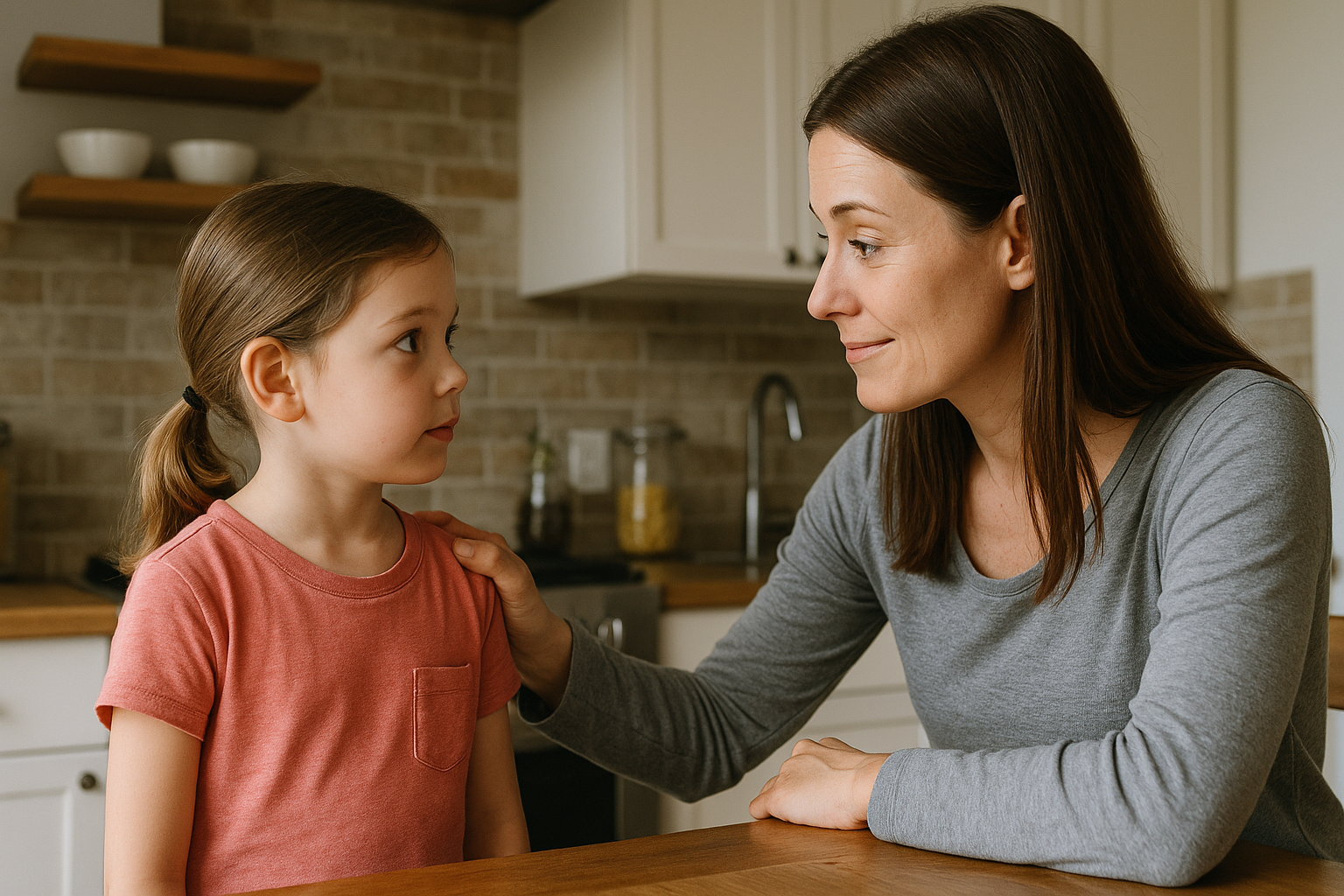Responsibility is one of the most valuable life skills a child can learn. It’s about more than just completing chores or following rules—it’s the foundation for becoming independent, reliable, and respectful. But many parents wonder: how can we teach responsibility without being too strict or harsh?
The answer lies in gentle guidance, clear expectations, and consistent encouragement. When responsibility is taught with respect and support, children are more likely to take ownership of their actions and grow into confident, capable individuals.
Here’s how to help your child develop a strong sense of responsibility—without pressure or punishment.
Understand What Responsibility Really Means
Responsibility isn’t just doing what you’re told. It includes:
- Taking care of belongings and tasks
- Following through on promises
- Being accountable for behavior and choices
- Helping others and contributing to the family or community
- Learning from mistakes without fear
True responsibility comes from internal motivation, not fear of consequences. That’s why respectful teaching works better than threats or constant reminders.
Start Early With Age-Appropriate Tasks
Even toddlers can begin learning responsibility through simple routines. Starting young builds the foundation for bigger responsibilities later on.
For young children:
- Put toys away after play
- Feed the pet with supervision
- Help set the table
- Put clothes in the laundry basket
For school-age children:
- Make the bed
- Pack their own school bag
- Clean their room
- Help with meal prep or cleanup
Make tasks part of daily life—not a punishment. Use calm, clear language: “This is your job, just like I have mine.”
Offer Choices and Ownership
When children have a say in how they do something, they’re more likely to feel capable and responsible.
Examples:
- “Would you rather clean up before or after your snack?”
- “Do you want to sweep or wipe the table today?”
- “Can you think of a way to make this job easier?”
Giving choices shows respect and helps build decision-making skills. It turns tasks into something they do for themselves—not just because you told them to.
Be Consistent With Routines
Routines give children a sense of structure and control. When certain tasks happen at the same time every day, they become habits.
Establish routines for:
- Morning (getting dressed, brushing teeth, making bed)
- After school (snack, homework, tidy up)
- Evening (help with dinner, clean up toys, bedtime prep)
Use visual charts or simple checklists for younger children. Celebrate when routines are followed—consistency creates confidence.
Avoid Doing Everything for Them
It can be faster and easier to do things yourself—but constantly stepping in prevents your child from learning and growing.
If your child struggles with a task:
- Offer guidance, not a solution
- Break it into smaller steps
- Allow mistakes—they’re part of learning
Say: “I know it’s tricky, but I believe you can figure it out. I’ll be right here if you need help.”
Letting them struggle a little builds problem-solving skills and personal pride.
Use Natural Consequences, Not Punishments
Harsh punishments may create fear—but they don’t teach responsibility. Instead, use natural consequences that help your child see the results of their choices.
For example:
- If they forget their lunch, they’ll be hungry until they get home.
- If they leave a toy outside and it gets wet, they learn to take better care next time.
- If they don’t finish homework, they may have to explain to the teacher.
Talk through what happened with empathy, not shame. Ask: “What do you think you could do differently next time?”
Praise Effort, Not Just Results
Celebrate when your child shows responsibility—even in small ways.
Say:
- “I noticed you put your shoes away without being asked. That was really responsible.”
- “You remembered your homework—that shows maturity.”
- “You helped your sibling even though it wasn’t your job. That’s kind and responsible.”
Focus on effort and attitude. This builds intrinsic motivation, which leads to lasting responsibility.
Involve Them in Family Responsibilities
Children want to feel like they matter. Give them real ways to contribute to the family, not just assigned chores.
Examples:
- Let them help plan meals
- Involve them in organizing their space
- Ask their opinion when setting family routines or rules
- Include them in decisions about pets, schedules, or outings
This teaches that responsibility isn’t a burden—it’s part of belonging to a team.
Teach Accountability With Compassion
When your child makes a mistake, resist the urge to scold or fix everything. Instead, help them take responsibility in a supportive way.
Say:
- “Everyone makes mistakes. What can we do to fix it?”
- “That choice didn’t work out—what do you want to do differently next time?”
- “Let’s think about how your actions affected others.”
Accountability should feel safe—not scary. Your child will be more honest and reflective when they know they won’t be shamed.
Be a Role Model
The most powerful lesson in responsibility is your own example. Let your child see you:
- Admit when you forget something
- Apologize when you make a mistake
- Follow through on commitments
- Take care of shared spaces and responsibilities
Talk out loud about what you’re doing and why: “I’m paying this bill today because it’s part of taking care of our home.”
Children learn more from what you do than what you say.
Responsibility Grows With Respect
Teaching responsibility doesn’t require yelling, punishments, or power struggles. It requires trust, consistency, and patience.
When you guide your child with compassion and clear expectations, you’re showing them that being responsible is part of growing up—not a chore to avoid or a rule to fear.
And the more your child experiences success in managing themselves and their world, the more capable and confident they’ll feel—both now and for life.
